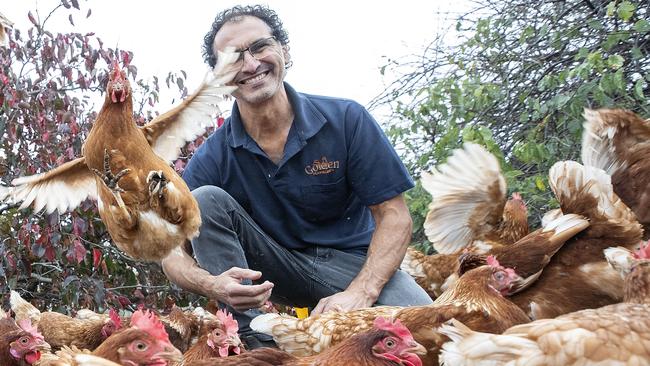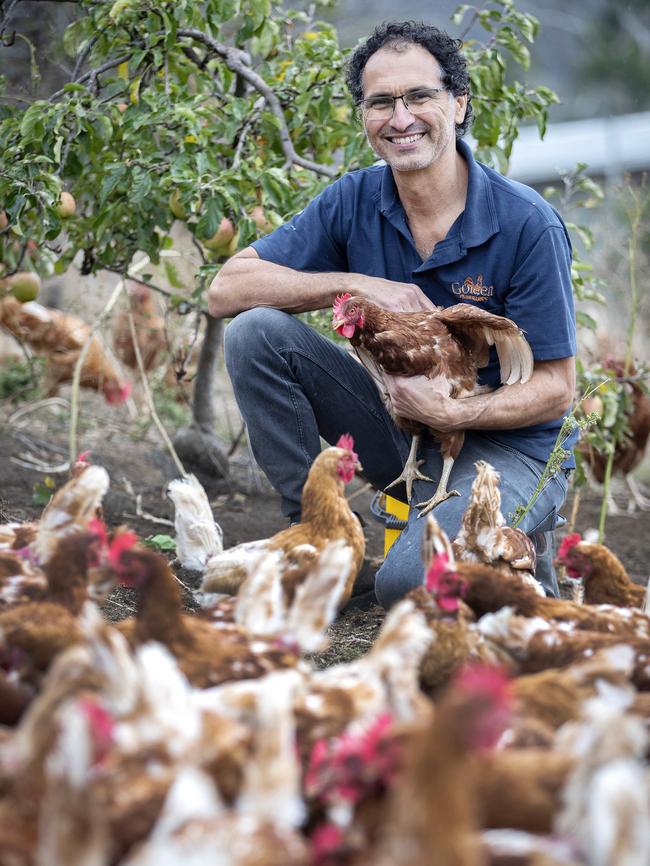Egg producers struggle to meet demand as hospitality rebounds
A massive demand for eggs from a rebounding hospitality sector sees producers scrambling to pack enough to service cafes and hotels and also fill supermarket shelves.
Business
Don't miss out on the headlines from Business. Followed categories will be added to My News.
TASMANIA is facing a post Easter egg hunt as producers scramble to meet a massive demand from a hungry hospitality sector and supermarkets also cry out for cartons of fresh eggs.
The state’s biggest egg producer – Pure Foods Eggs – says supply will be stretched for several months as it waits for production to rebuild when young chickens reach egg-laying age.
Golden Free Range, at Acton Park, said its chickens were pumping out eggs as fast as they could to meet the “crazy” demand.
It is also taking on new hospitality customers where it could as cafes, restaurants and hotels searched for eggs to cook.
“It is a good problem to have but we can’t just ramp up our chickens,” Steve Pavlides from Golden Free Range said.

“Retail is suffering as the demand from hospitality shows no sign of abating. We are servicing our customers and selling to new customers where we can.”
Pure Foods Eggs CEO Kate Daley the shortage was associated with a production delay.
“It takes chickens six months to start producing eggs. With the lack of tourists our egg sales were down 30 per cent in the last two years,” Ms Daley said.
“We had an egg surplus during the border closure. We had to keep feeding the birds so we ended our flocks early. We are now rebuilding.

“When we learned the borders were reopening we planned for extra production but there is a delay and demand is very strong – almost back to pre-Covid times.”
Salamanca Fresh in Salamanca, Hobart, said it had eggs at the moment but the shelves were almost bare two weeks ago.
Pure Foods Eggs, based in Longford, is building a new free-range shed, which will house 20,000 birds.
It is due to come online in July and will produce half a million dozen eggs per annum.
The company said it expected production to increase, and the shortage to be over, in the second half of this year.



